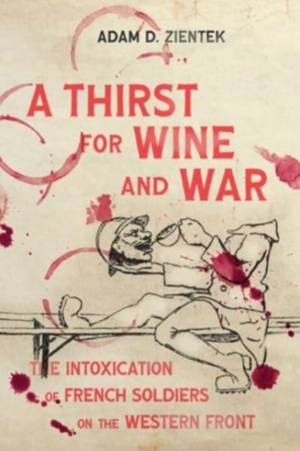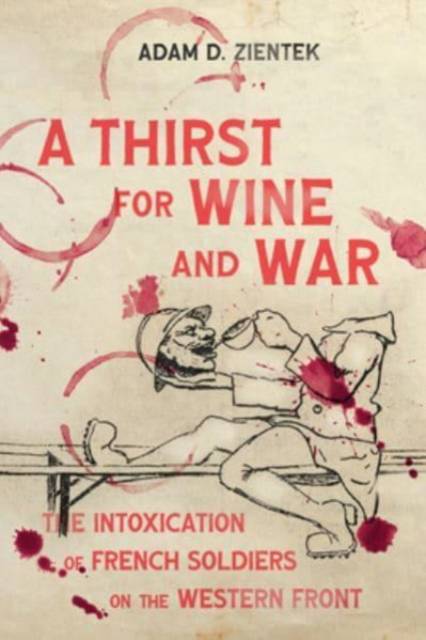
- Afhalen na 1 uur in een winkel met voorraad
- Gratis thuislevering in België vanaf € 30
- Ruim aanbod met 7 miljoen producten
- Afhalen na 1 uur in een winkel met voorraad
- Gratis thuislevering in België vanaf € 30
- Ruim aanbod met 7 miljoen producten
Zoeken
A Thirst for Wine and War
The Intoxication of French Soldiers on the Western Front
Adam Zientek, Adam D Zientek
€ 65,95
+ 131 punten
Omschrijving
Beginning in the fall of 1914, every French soldier on the Western Front received a daily ration of wine from the army. At first it was a modest quarter litre, but by 1917 it had increased to the equivalent of a full bottle each day. The wine ration was intended to sustain morale in the trenches, making the men more willing to endure suffering and boredom. The army also supplied soldiers with doses of distilled alcohol just before attacks to increase their ferocity and fearlessness. This strategic distribution of alcohol was a defining feature of French soldiers' experiences of the war and amounted to an experimental policy of intoxicating soldiers for military ends. A Thirst for Wine and War explores the French army's emotional and behavioural conditioning of soldiers through the distribution of a mind-altering drug that was later hailed as one of the army's "fathers of victory." The daily wine ration arose from an unexpected set of factors including the demoralization of trench warfare, the wine industry's fear of losing its main consumers, and medical consensus about the benefits of wine drinking. The army's related practice of distributing distilled alcohol to embolden soldiers was a double-edged sword, as the men might become unruly. The army implemented regulations and surveillance networks to curb men's drinking behind the lines, in an attempt to ensure they only drank when it was useful to the war effort. When morale collapsed in spring 1917, the army lost control of this precarious system as drunken soldiers mutinied in the thousands. Discipline was restored only when the army regained command of soldiers' alcohol consumption. Drawing on a range of archives, personal narratives, and trench journals, A Thirst for Wine and War shows how the French army's intoxication of its soldiers constituted a unique exercise of biopower deployed on a mass scale.
Specificaties
Betrokkenen
- Auteur(s):
- Uitgeverij:
Inhoud
- Aantal bladzijden:
- 288
- Taal:
- Engels
- Reeks:
Eigenschappen
- Productcode (EAN):
- 9780228019930
- Verschijningsdatum:
- 13/02/2024
- Uitvoering:
- Paperback
- Formaat:
- Trade paperback (VS)
- Afmetingen:
- 150 mm x 226 mm
- Gewicht:
- 417 g

Alleen bij Standaard Boekhandel
+ 131 punten op je klantenkaart van Standaard Boekhandel
Beoordelingen
We publiceren alleen reviews die voldoen aan de voorwaarden voor reviews. Bekijk onze voorwaarden voor reviews.











